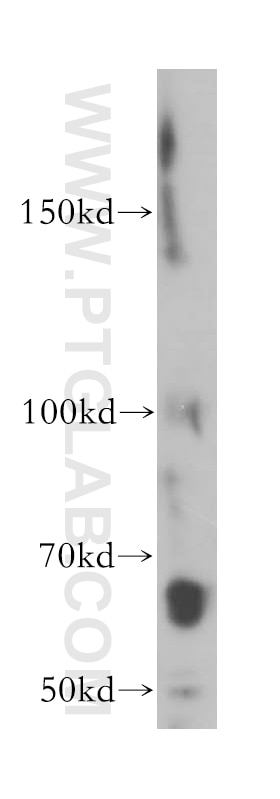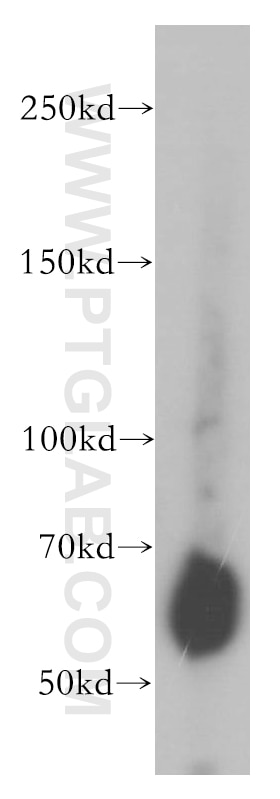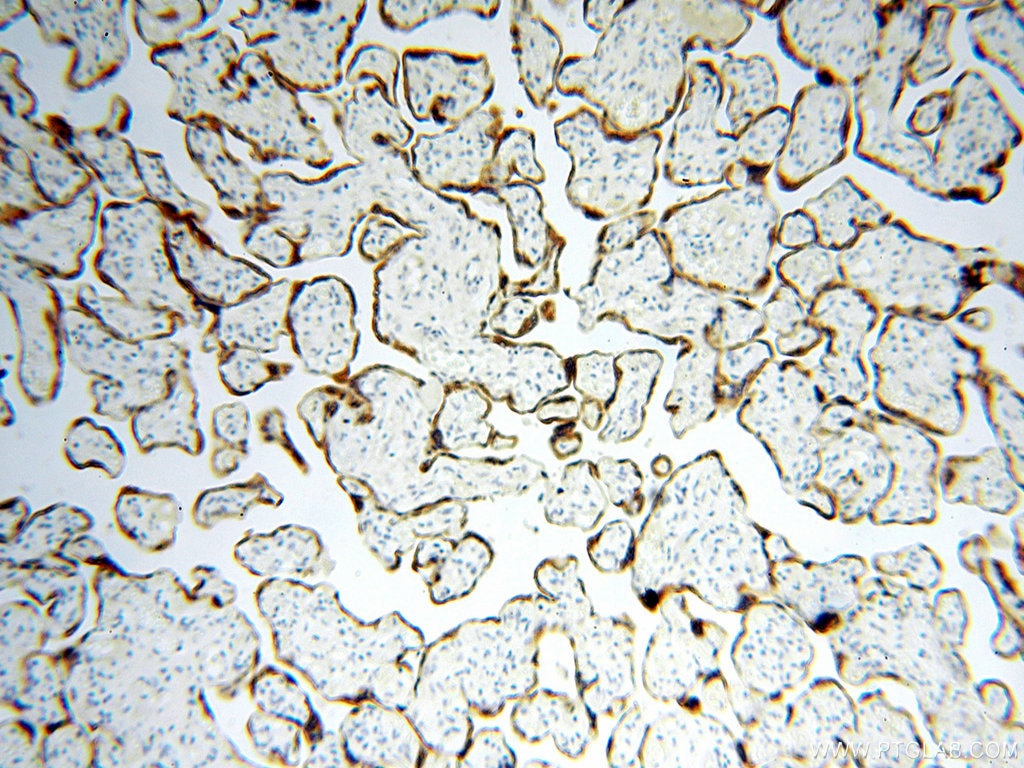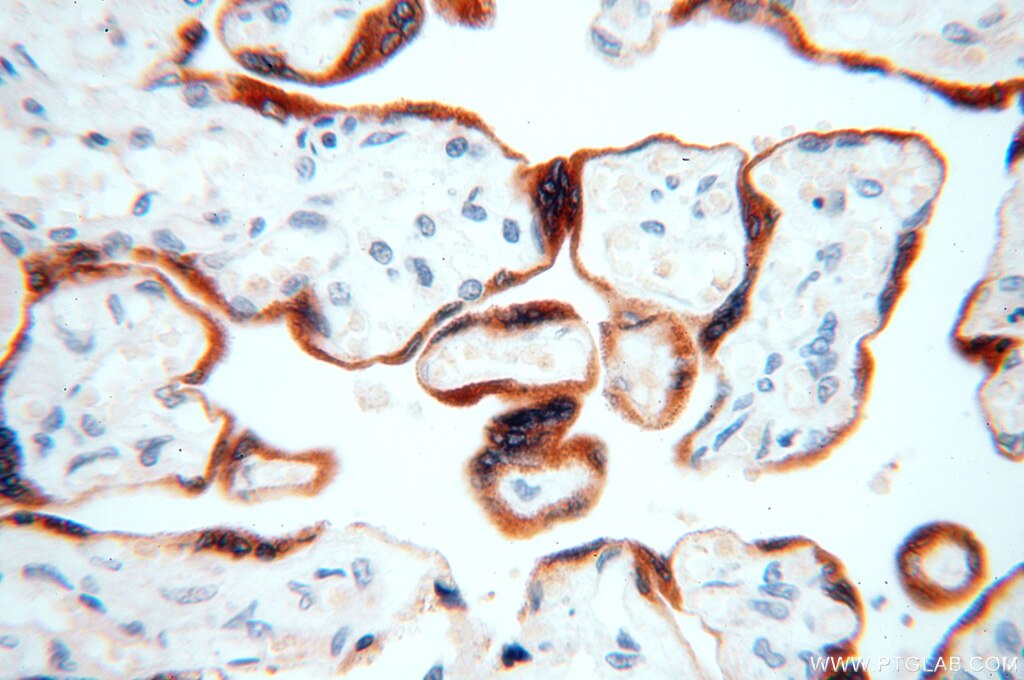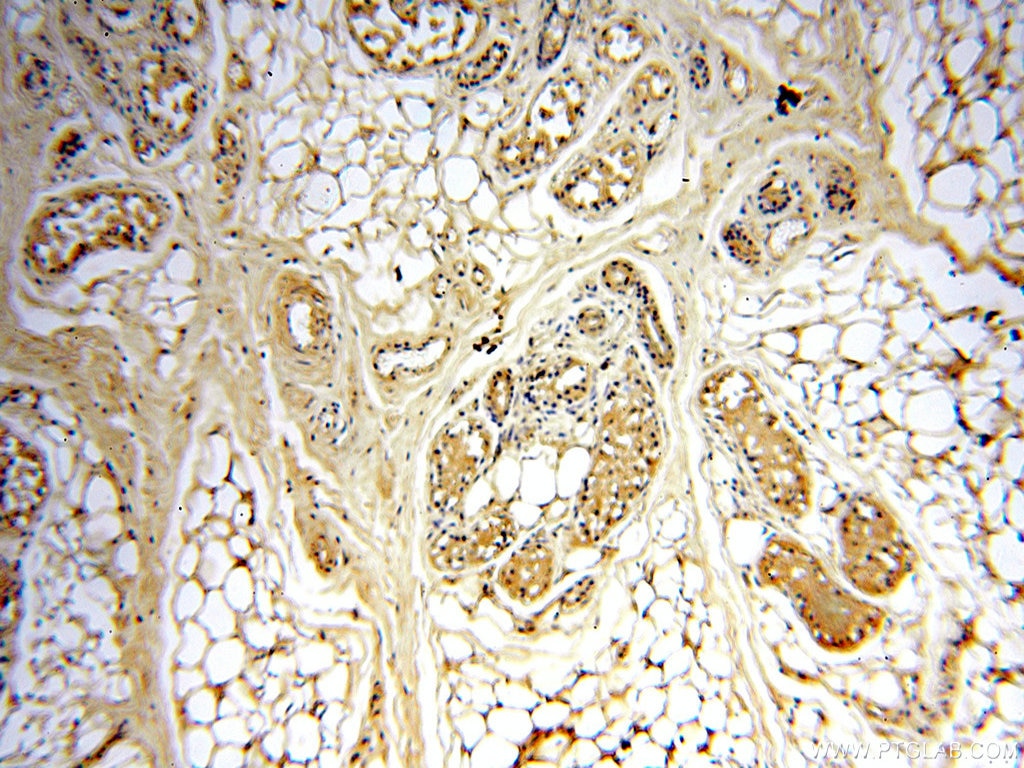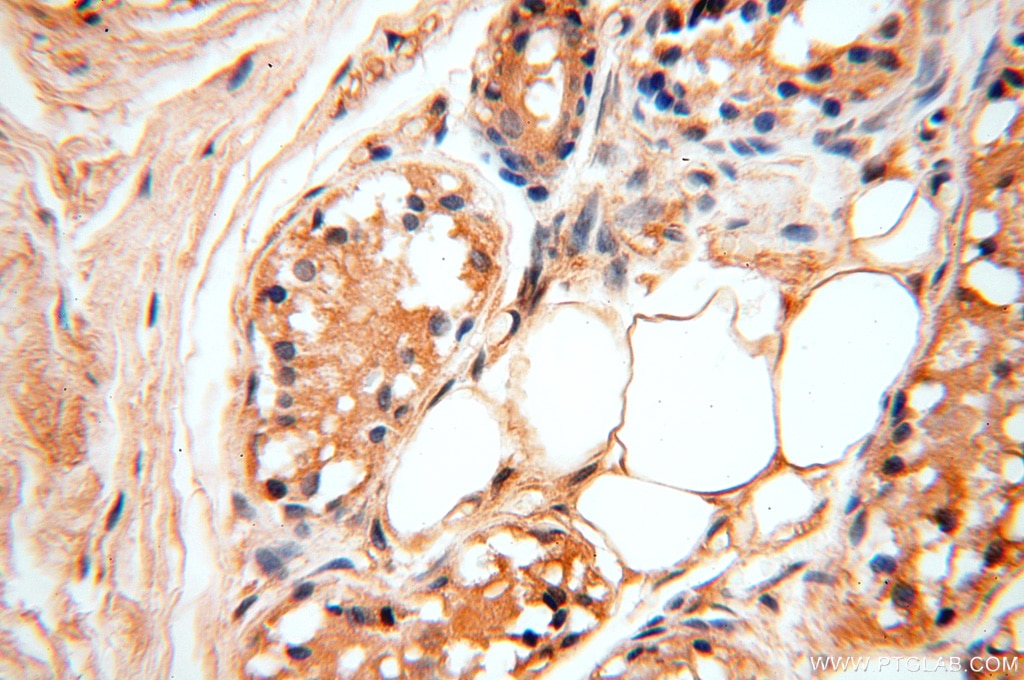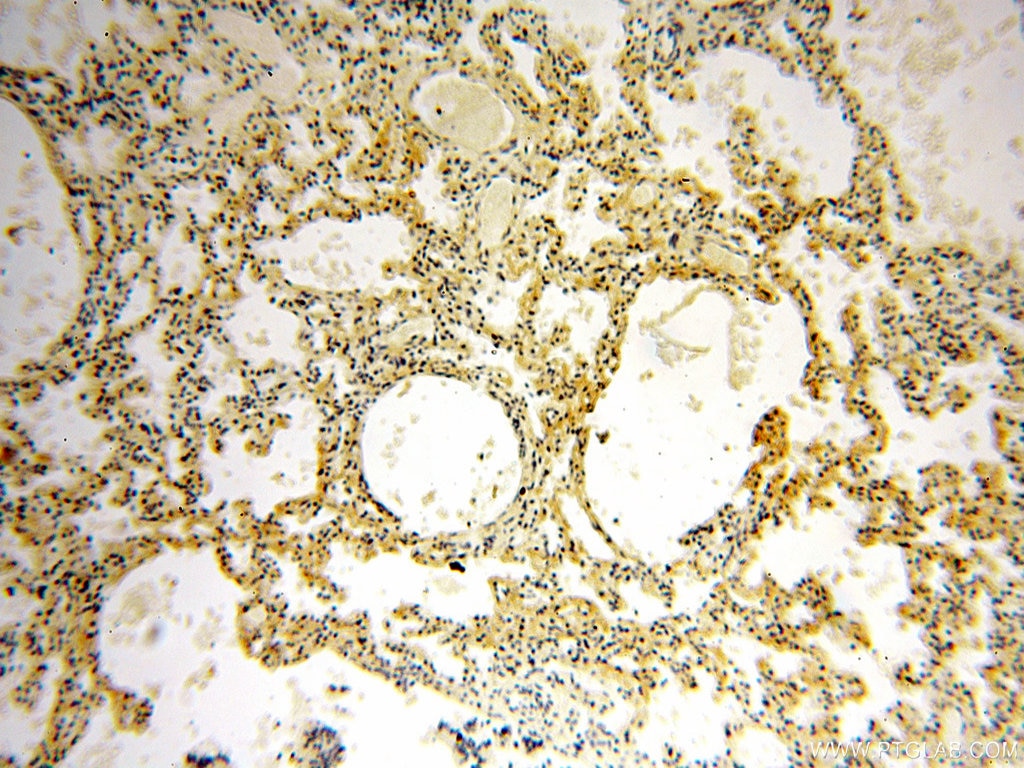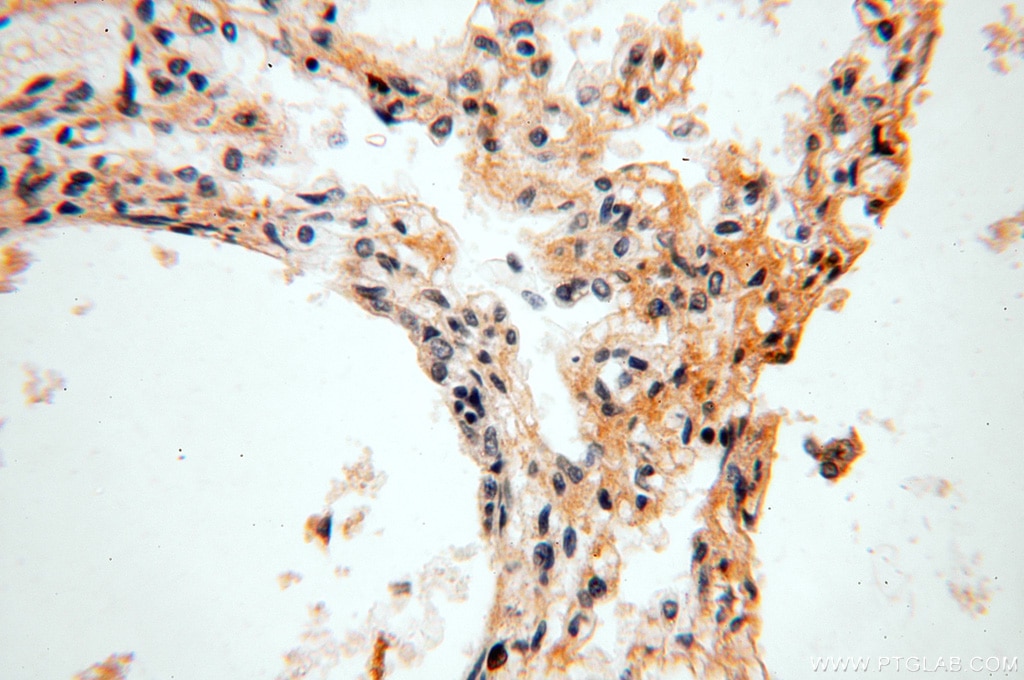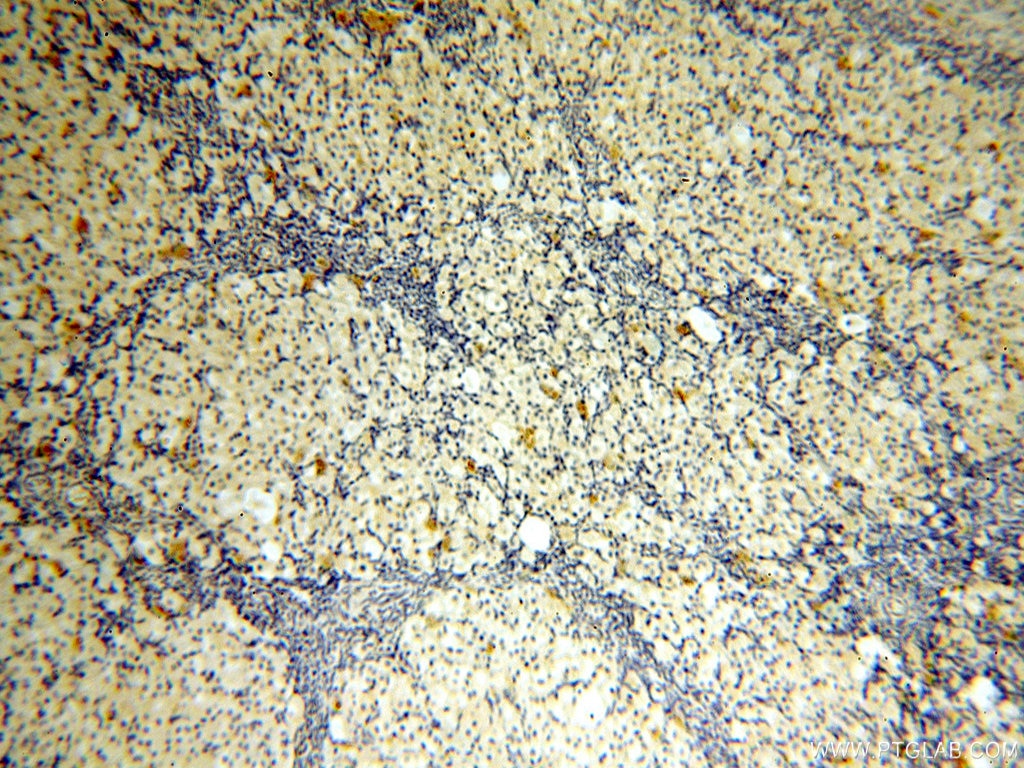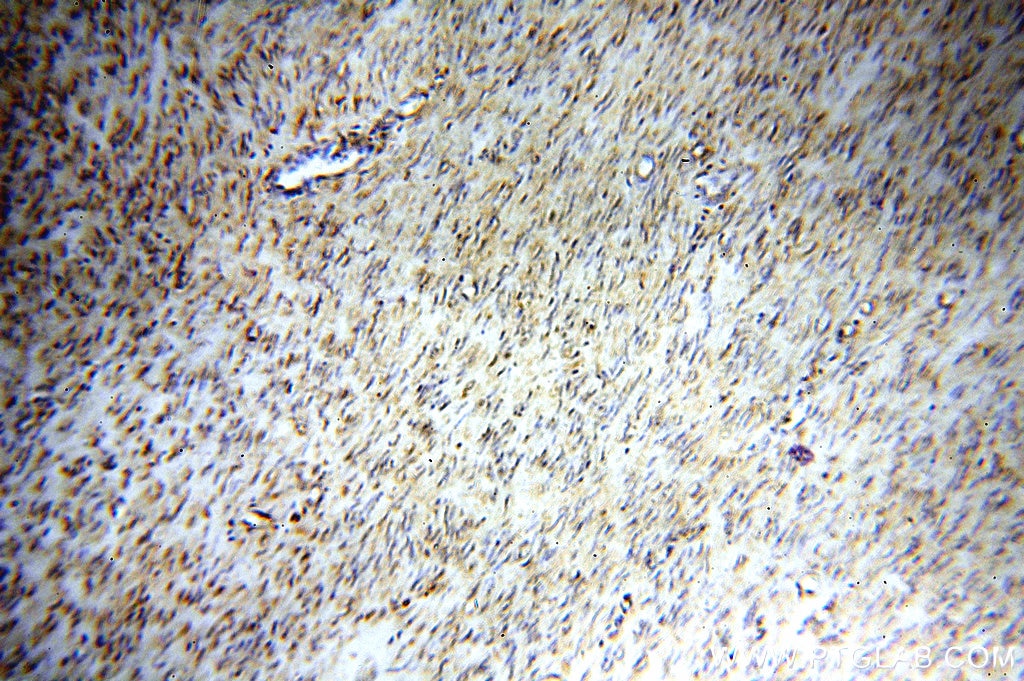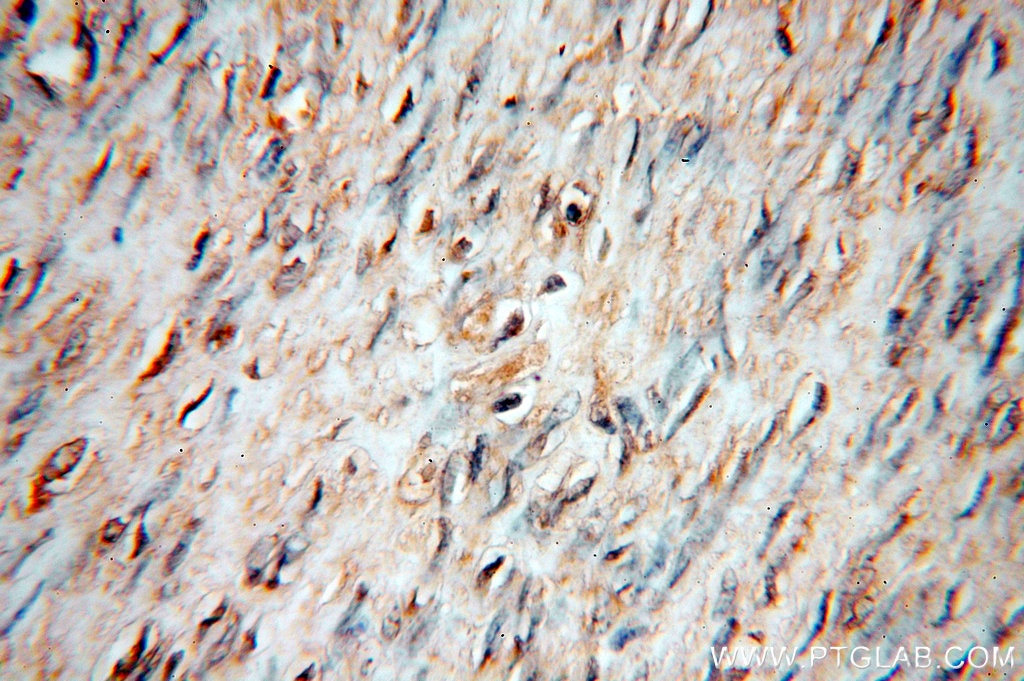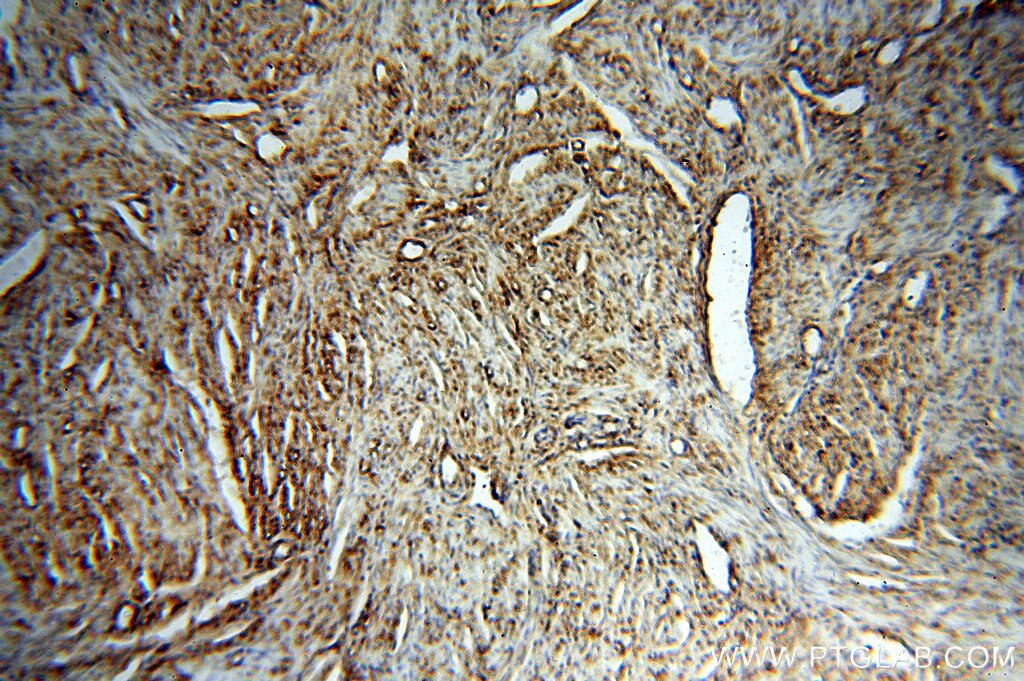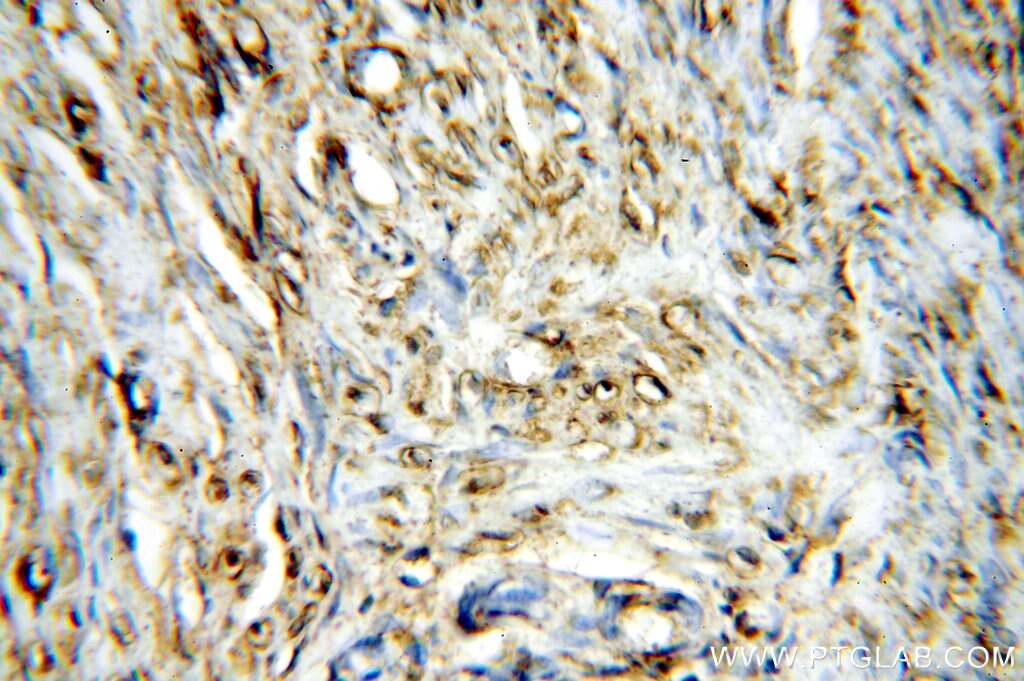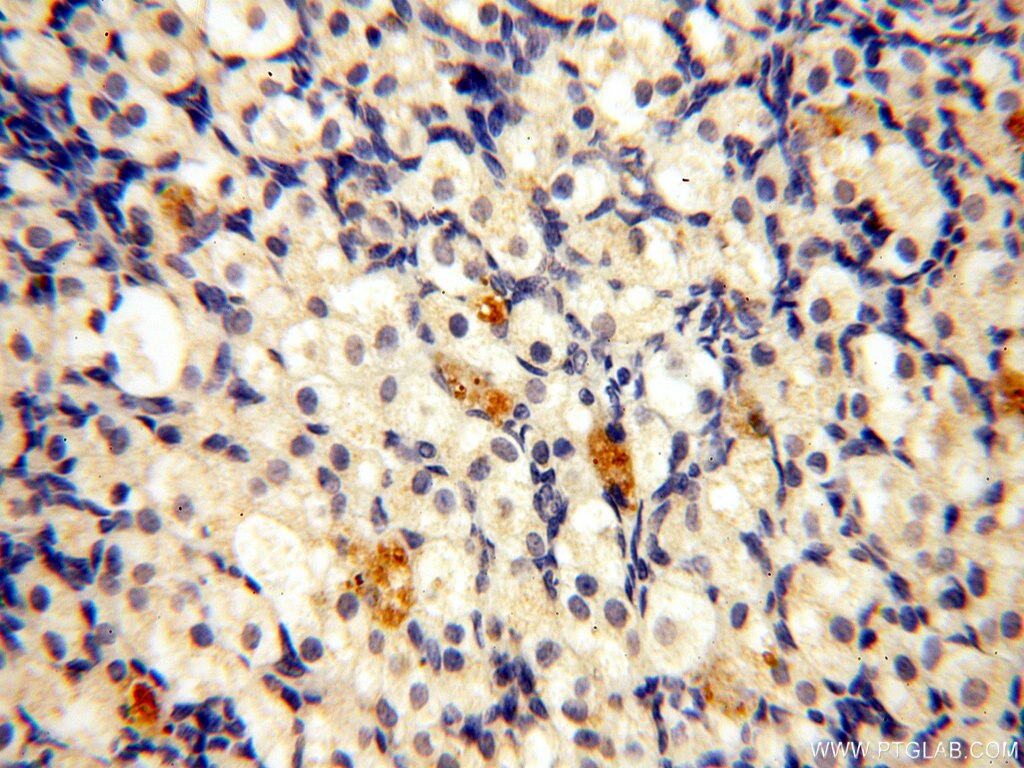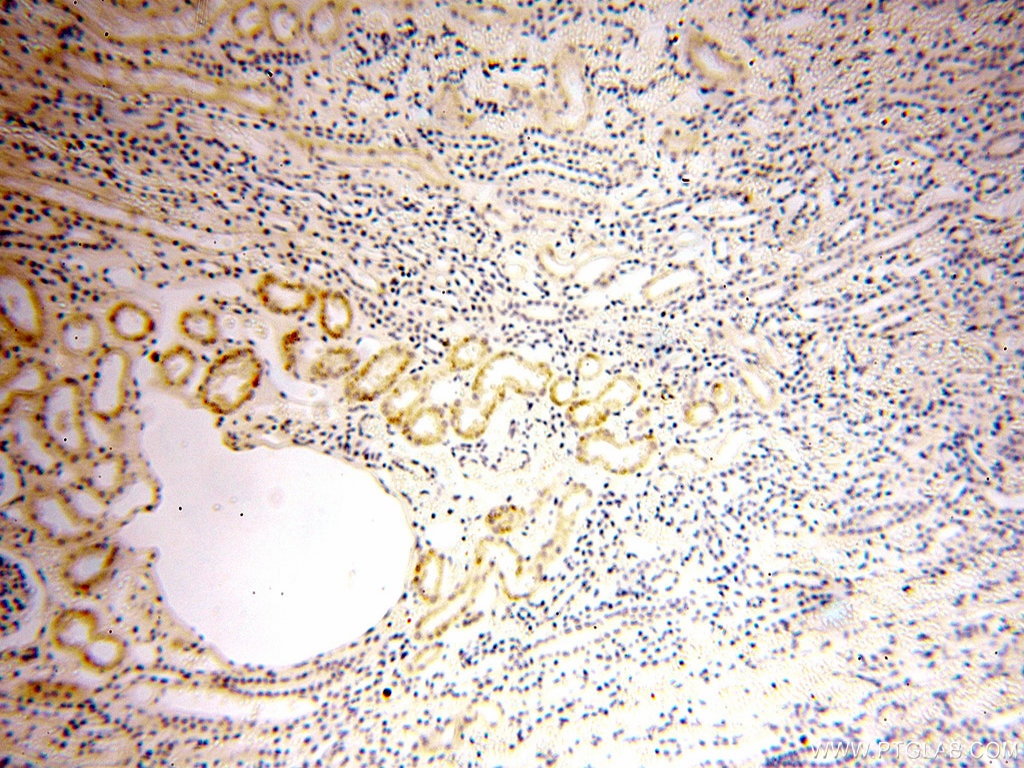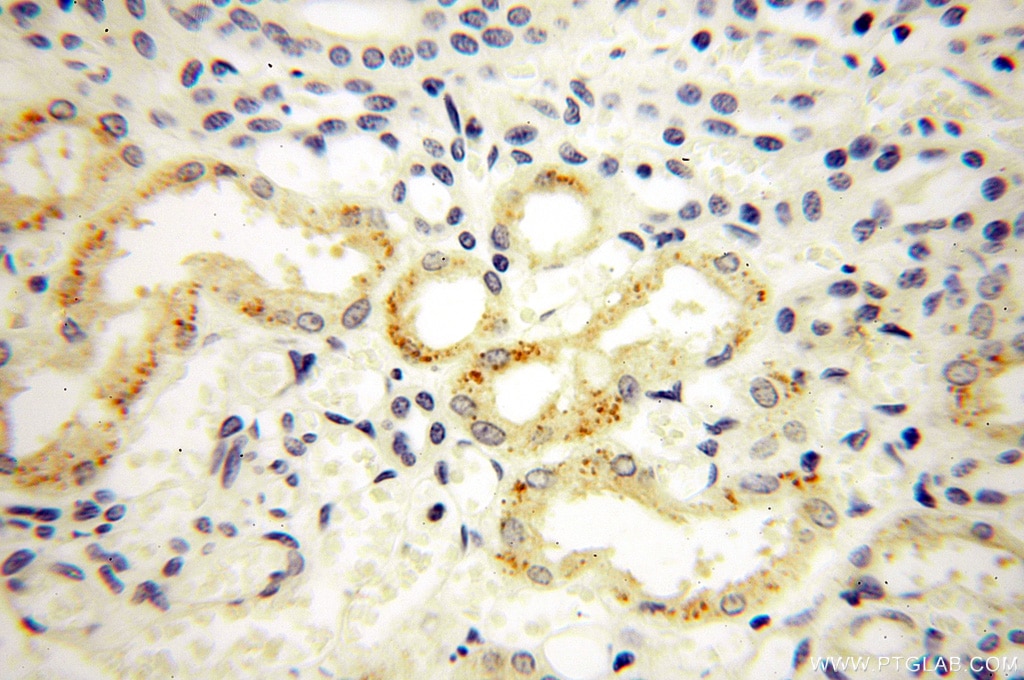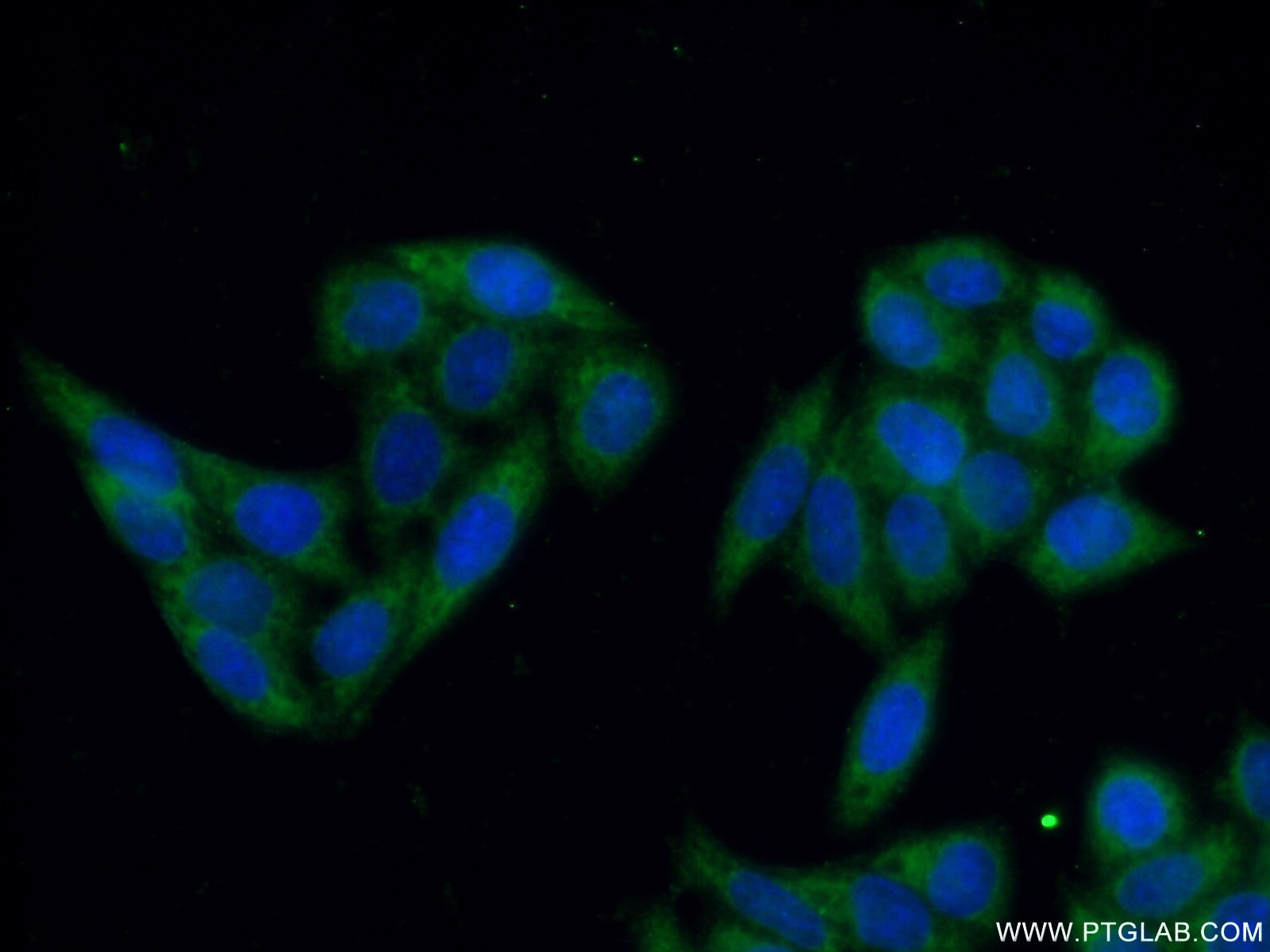- Featured Product
- KD/KO Validated
STS Polyclonal antibody
STS Polyclonal Antibody for WB, IF, IHC, ELISA
Host / Isotype
Rabbit / IgG
Reactivity
human, mouse, rat
Applications
WB, IF, IHC, ELISA
Conjugate
Unconjugated
Cat no : 17870-1-AP
Synonyms
Validation Data Gallery
Tested Applications
| Positive WB detected in | MCF7 cells, human placenta tissue |
| Positive IHC detected in | human placenta tissue, human hysteromyoma tissue, human kidney tissue, human lung tissue, human ovary tissue, human skin tissue Note: suggested antigen retrieval with TE buffer pH 9.0; (*) Alternatively, antigen retrieval may be performed with citrate buffer pH 6.0 |
| Positive IF detected in | HeLa cells |
Recommended dilution
| Application | Dilution |
|---|---|
| Western Blot (WB) | WB : 1:500-1:2000 |
| Immunohistochemistry (IHC) | IHC : 1:20-1:200 |
| Immunofluorescence (IF) | IF : 1:50-1:500 |
| It is recommended that this reagent should be titrated in each testing system to obtain optimal results. | |
| Sample-dependent, Check data in validation data gallery. | |
Published Applications
| KD/KO | See 1 publications below |
| WB | See 4 publications below |
| IF | See 2 publications below |
Product Information
17870-1-AP targets STS in WB, IF, IHC, ELISA applications and shows reactivity with human, mouse, rat samples.
| Tested Reactivity | human, mouse, rat |
| Cited Reactivity | human, mouse, rat |
| Host / Isotype | Rabbit / IgG |
| Class | Polyclonal |
| Type | Antibody |
| Immunogen | STS fusion protein Ag12353 |
| Full Name | steroid sulfatase (microsomal), isozyme S |
| Calculated Molecular Weight | 583 aa, 65 kDa |
| Observed Molecular Weight | 63-65 kDa |
| GenBank Accession Number | BC075030 |
| Gene Symbol | STS |
| Gene ID (NCBI) | 412 |
| RRID | AB_2240080 |
| Conjugate | Unconjugated |
| Form | Liquid |
| Purification Method | Antigen affinity purification |
| Storage Buffer | PBS with 0.02% sodium azide and 50% glycerol pH 7.3. |
| Storage Conditions | Store at -20°C. Stable for one year after shipment. Aliquoting is unnecessary for -20oC storage. 20ul sizes contain 0.1% BSA. |
Background Information
STS(Steroid sulfatase) is also named as ASC(arylsulfatase C), ARSC1 and belongs to the sulfatase family. It is expressed in human liver and is responsible for the hydrolysis of many estrogen and hydroxysteroid sulfates, including dehydroepiandrosterone (DHEA)-sulfate and β-estradiol(E2)-3-sulfate(PMID:19589875). This enzyme has also been documented to occur in many other tissues, including skin, lung, ovary, and adrenal gland. The estimated molecular mass of expressed human STS is 63-85 kDa which may represent different levels of glycosylation in the different tissues, as STS is known to be a glycoprotein and the full length protein has a signal peptide with 21 amino acids(PMID:17604157).
Protocols
| Product Specific Protocols | |
|---|---|
| WB protocol for STS antibody 17870-1-AP | Download protocol |
| IHC protocol for STS antibody 17870-1-AP | Download protocol |
| IF protocol for STS antibody 17870-1-AP | Download protocol |
| Standard Protocols | |
|---|---|
| Click here to view our Standard Protocols |
Publications
| Species | Application | Title |
|---|---|---|
Clin Cancer Res Steroid Sulfatase Stimulates Intracrine Androgen Synthesis and is a Therapeutic Target for Advanced Prostate Cancer.
| ||
Sci Rep Estrogen Secreted by Mesenchymal Stem Cells Necessarily Determines Their Feasibility of Therapeutical Application. | ||
Mol Cell Biochem Resveratrol and its methoxy derivatives modulate the expression of estrogen metabolism enzymes in breast epithelial cells by AhR down-regulation. | ||
J Biomed Res Suppressed estrogen supply via extra-ovarian progesterone receptor membrane component 1 in menopause. | ||
Life Sci Alliance Macrophage Sult2b1 promotes pathological neovascularization in age-related macular degeneration |
